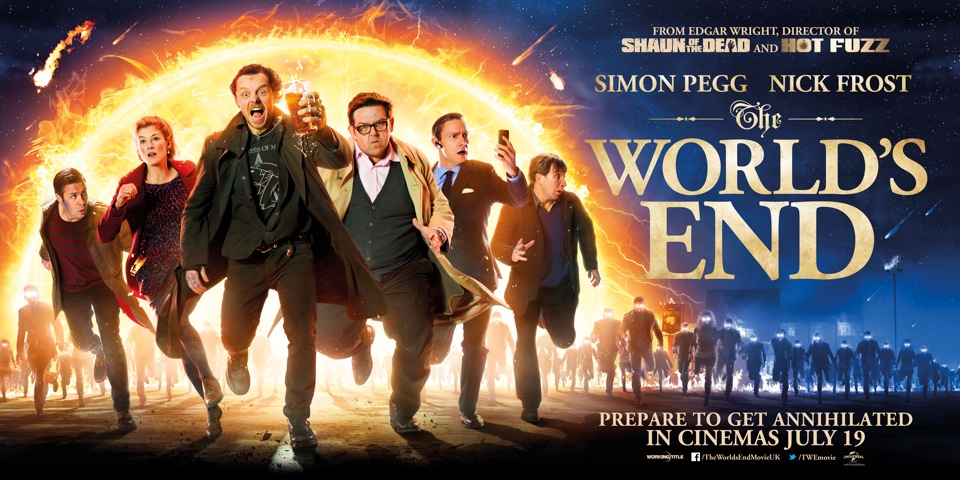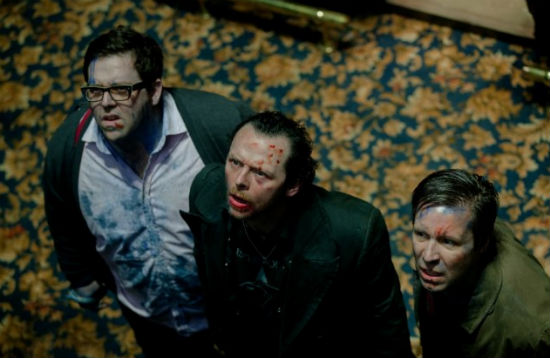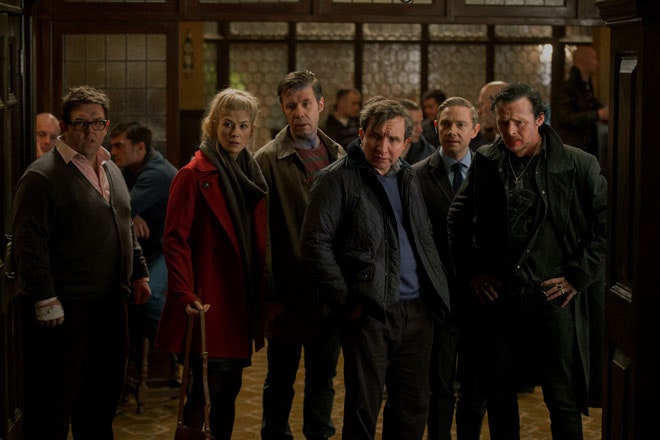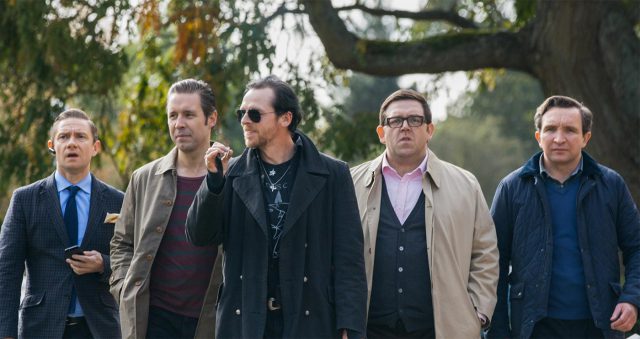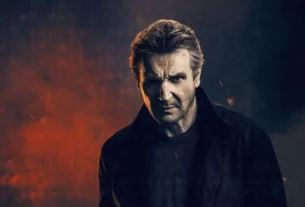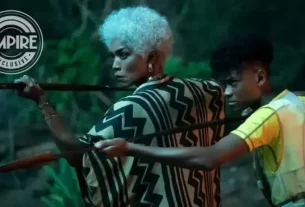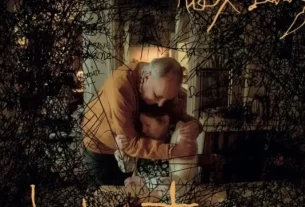You might not think a slapstick comedy about middle-aged bar hoppers racing with advanced alien invaders to have intelligence, heart and wisdom, but that’s “The World’s End,” a 2013 rare film that’s as much as you see.
Directed by Edgar Wright from a script by him and his regular protagonist, Simon Pegg, the film is nicely personal, despite the chasing and hunting and decapitation and exploding and the amount of blue blood going all over the place. The special effects are special, but they always tell the story and characters. Matt Zoller Seitz said in his review, “And even when Wright is paying homage to his filmmaking heroes (John Carpenter especially) or staging some of the most cleverly choreographed fights this side of an early ’90s Jackie Chan film, you never get the sense that it’s bored with itself when the characters are sitting around talking about their shared history over a pint.” Actually, they often talk about their shared stories while they’re attacking the aliens – and have a drink. Sometimes they have a drink during the fight. This is the type of movie you get.
Pegg’s character, Gary King, wants everyone to call him The King and thinks he is a prince among men, but he’s the type of person you get aggravated with easily. His friends have grown tired of him a long ago. They tell themselves they’ve matured. Seitz said, “Gary thinks they’ve sold out and become tediously conventional.” To the film’s credit, not one of these points-of-view is told completely wrong.
Oliver, played by Martin Freeman, is a whiny misery of a real estate agent with a Bluetooth always stuck on his ear. Steven (Paddy Considine), an architect who was once Gary’s enemy for the love of Oliver’s sister Sam (Rosamund Pike), is recently divorced and sleeping with a young fitness instructor. He brags about that last time to everyone who’ll listen, which is how you know he’s horrible about until he dies. Peter, played by Eddie Marsan, who was badly bullied in his youth, was always the go after nerd of the old group. Now he sells cars for his dad. Andrew, played by Nick Frost, is a lawyer who refuses to speak to (or of) Gary. Gary says it’s because he still owes Andrew six hundred pounds from long ago, but audiences will think that the real reason for the argument goes deeper. In fact it’s a bummer.
The first part of the movie is Gary “getting the old band back together,” as he says, to re-enact their great pub hopping mission from 1990, when they decided to go to all twelve bars in their old hometown of Newton Haven. Seitz says, “The quiet little town is home to bars with mythologically and otherwise suggestively loaded names: The Two-Headed Dog, The Famous Cock, The Trusty Servant, The World’s End.” That the friends didn’t complete their mission has always annoyed Gary. He’s crazy about closing this chapter in his long-unfinished story.
Seitz says, “Running beneath the lively banter and knockabout slapstick is a sense of melancholy, at times despair, over lost youth and missed opportunities.” Gary is an alcoholic and drug user and chronic contort, the type of person who attracts other friends into tagging along which usually ends with humiliation or disaster. He’s first seen in a rehab facility, but looking at his appearance and behavior he hasn’t been there long. Seitz describes, “Pegg looks like he just crawled out of bed—a bed at the bottom of a mine shaft, most likely—and even his most jocular pronouncements have an undertone of manic desperation.” “Why should getting older affect something as important as friendship?” he demands, a question tough with unlooked guesses.
Seitz said, “If “The World’s End” were only a picture about childhood buddies on a bittersweet pub crawl, it might have still been some sort of minor classic, so sharply observed is every shot, cut, music cue, line and close-up. When the film takes a right turn into science fiction conspiracy thriller territory—invoking “Invasion of the Body Snatchers” as well as such Carpenter films as “The Fog” and “Prince of Darkness”—you might worry that it’s about to succumb to Gary’s biggest fear, and trade spiky if heedless individuality for a tiresome grab at commercial formula. (This is the third Wright film in which a dull community proves a hotbed of slowly-creeping and highly secretive horror.) No worries: the sci-fi elements—which were hinted at in trailers, but which I’ll write around in this review and maybe revisit later in a spoiler-warning-bedecked blog post—are audaciously funny and inventively designed, and they’re always tied to the film’s concerns. Nothing, no matter how extravagant or surreal, is superfluous.”
Fears of adjustment and instruction and the loss of youthful desire are never far from the movie’s thoughts. Neither is the all around thought and reasonable feeling that, while we should try to be better, kinder, more mature people, we still are who we are, and if we cannot stand one another’s flaws and treat each other respectfully, there’s no hope for mankind. Seitz said, “The film has great fun painting modern life itself as a prolonged and largely invisible conspiracy to rob people and their world of all personality. Every old pub the boys revisit has been Starbucked, as they put it, and later we get the sense that the very same digitally connected world that lets you read this review on a tiny handheld computer-phone is a means of social control as well. Odd as it might sound, the unexpectedly laid back climax echoes “A Clockwork Orange.”” It shows a feeling that, while a completely safe and calm and perfect world might be possible, it’s not wanted, and might really be a large sin than anything that any person could do.
Wright is a smart director of fast-paced exposition, stylish but damaging action scenes, and graphically large comedic overload. Seitz said, “As in “Shaun of the Dead,” “Hot Fuzz” and “Scott Pilgrim vs. The World,” even functional closeups of beer being poured or ignition keys being turned are shot as if they were events on par with the Big Bang or the release of a new Kanye West album. Wright is a pop artist who’s not inclined to relax; at times his movies play as if he’d decided to turn the first five minutes of “Trainspotting” into a career. There are times when I wished the “The World’s End” had the confidence to linger more on the characters’ conversations and nonverbal interactions. The group’s chemistry evokes the best sad-sack male bonding tales of Barry Levinson (“Diner,” “Tin Men”), and the performances are all superb, particularly Frost, who steals the film with an explosive physicality that’s John Goodmanesque.”
However, at a time where mainstream movies not only have rhythm but look like they have forgotten how to movie, this one’s speed is inspiring. Its judgment is almost positive, and it has a feeling of fun that’s rare. Seitz said, “Like most genre films, “The World’s End” is working things through in an extremely broad way and having a grand time doing it, and its self-deprecating wit inoculates it against self-importance. The movie wears its themes on its sleeve and pins its symbols to its puffed-out rooster’s chest, swaggers about with a proud grin jabbing thumbs at itself, then walks into an open manhole.” This is just simply magnificent.
I know people might be wondering why this is referred to as “The Cornetto Trilogy.” That’s because in every movie, a Cornetto ice cream makes an appearance. See, in the USA, we do not get Cornetto, but it’s apparently a popular brand over in England. Also, being inspired by Krzysztof Kieslowski’s Three Color film trilogy, the Cornetto colors symbolize an element of the film. “Shaun of the Dead” is red for zombies, “Hot Fuzz” is blue for police, and “The World’s End” is green for aliens.
Now, I know that there might be people who do not agree with me on this, but I think that “The World’s End” is the funniest of the trilogy. People might disagree and say that “Hot Fuzz” is the funniest, but found myself laughing at “The World’s End” more. This also makes another one of my favorite comedies. If you saw the other two movies in “The Cornetto Trilogy,” don’t skip this one over. Give it a watch because you will also love the fast-paced comedy that keeps this trilogy rolling.
Thank you everyone for joining in on “Edgar Wright Month.” I know that people probably wanted me to review “Baby Driver,” but I never saw that one. However, I did hear some really good things about it, and I might check it out one day. When I do, everyone will know because I will give it the right treatment.
